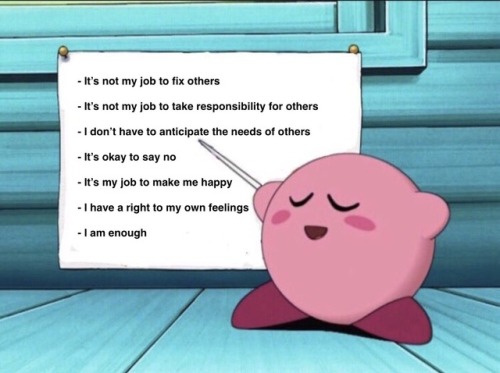This Is A First And Foremost A Disability Blog, And I Saw A Post Regarding These Protests That I Knew
This is a first and foremost a disability blog, and I saw a post regarding these protests that I knew I would have to address at some point. I know that all kinds of people follow me and this message is for all of you:
Social Media activism has its role, but a limited effect. You can do far more by donating to a legit movement than by reposting every little post about these protests. You can be aware of what’s going on, do your part, and still take care of your mental and physical health.
I know that the favorite line in response to acknowledging these limits is “black people can’t take a break from racism” which I agree but I also don’t get to take a break from ableism, sexism and classism. They’re soul crushing too. Just being physically disabled means I can’t even get up for my own rights, meanwhile I have severe anxiety that I know is worsened by gluing myself to world events.
Some of those people who need to step away do deal with racism. And by suggesting non black people can only support black lives by creating undue anxiety that can in effect cripple our ability to actually do something substantive is nonsense. It’s a guilt tripping performance of ideological purity, and downright harmful to all people no matter their identity.
Everyone needs a break, even those on the front lines, or your movement will die from pure exhaustion. So my fellow anxiety sufferers, you are not in any way letting black lives down because you aren’t rebloggong posts. I’m more concerned with donating if you can, and your vote this November. You can do so much more with those tools than any mindless page sharing.
Stay updated, stay involved, and don’t be ashamed for taking mental health breaks because by doing so you can be a more effective supporter. Right now there is a long YouTube art piece going around to raise funds for BLM movements though ad revenue, which I will Reblog again immediately after this post. Doing things like that is far more helpful than rebloggong every single protest post. You don’t have to do that no matter how many people shout out at you that you have no excuse, but they don’t know a thing about your life and what you deal with.
Support where you can but don’t let this become so destructive to your physical and mental health that you can’t even continue your support. We’re all human, we all have unique individual limits, even admidst a protest.
Stay safe, stay healthy, and stay mad about police brutality and racism.
More Posts from Zella-rose and Others
Hi! Sorry to bother you, but I'm almost certain I have AVPD and I'd like to explain it to my parents, since they've gotten upset over symptoms of AVPD that I've expressed and I want to tell them why I act like that. But they don't really think that PDs are a thing that exists. so how could I explain it to them so that they understand? thank you in advance !!
Hi there anon!
Wow, there’s a lot to unpack here. The most important is probably:
What you want to accomplish by telling your parents
What your relationship with your parents is like
Would you mind sharing a bit more about the situation? You can write more in asks, submit something or just message me, that works too! (And don’t worry, I won’t publish your username either way <3)
Or if you aren’t comfortable with that, I’ll see what advice I can scrounge up as-is =)
Sorry for being vague. Well, I have a pretty good relationship with my parents, but they get irritated and sometimes angry because of my sensitivity and how hard it is for me to approach someone and hold a conversation, or do something simple like order food. They tell me that I need to get over it and act appropriate for my age. I want to talk to them about my AVPD so that they might better understand why I act like this and possibly be able to help, or at least not put as much pressure on me
Thanks so much for clarifying! I’m glad you did, because this turns out to be a very different post than I was planning to write.
First of all, here’s some really good clinical descriptions of Avoidant Personality Disorder: Cleveland Clinic, and DSM.
The most fundamental thing:
You don’t experience the world the same way your parents do.
You live in the same world, of course. But the way you perceive, interpret and experience it, is very different. It’s like your brain applies a different filter.
You have certain specific needs, ones that your parents do not have.
That means they can’t rely on “what works for them” as a guide to what will work for you.
(Further, excellent reading: the Usual Error.)
The fact is, certain things are actually harder for you than for most people. And certain things are actually damaging to you, even though they might not damage others.
It’s a real issue. Your parents need to understand that you can’t turn this off.
It got built-in, which is the whole problem; everything grew around it. It’s integrated with your entire personality and the way you exist in the world.
You can’t choose which parts of your life it affects or doesn’t. By definition, a PD harms almost every aspect of your life, whether you want it to or not.
And this fact doesn’t change just because someone is mad at you or is being inconvenienced by your difficulties.
Becoming un-disordered is a very, very intricate and painstaking process, and it does not happen by force.
Personality disorders are complex.
AvPD is part anxiety disorder, part codependency/boundary problems, part emotional dysfunction; and like other PD’s, it’s viciously self-reinforcing.
(Social anxiety could be a helpful frame of reference for your parents. AvPD is like social anxiety, but different & more complex, so it’s tougher to deal with.)
It is very hard to get out of the PD cycle. That’s why every one of us needs a lot of help before we can find our way out.
Personality disorders mean inflexibility.
Part of that is, we take the same approach to all kinds of different problems. Even when a different solution would work better, we cling to avoidance.
Other people can watch us do the same thing over again, even though it was a disaster the last three times, and wonder why we can’t learn.
It’s not that we don’t know how things “should” be, or how we “should” act. We’re already perfectionists! We don’t need you to tell us.
And when people announce that we’re failing, or point out what we’re doing wrong, or how to do it better, that makes it worse.
It directly feeds our perfectionism, our fear of criticism, and our avoidance.
Knowing doesn’t fix it.
It’s not that kind of problem.
That’s why nobody can “snap us out of it” or make us “get over it.”
What we need is, to be given the chance to heal and grow.
We need to be cared for, accepted, and supported.
People with AvPD especially need help to get out of it. Avoidance keeps us in an ever-tightening loop of limited experiences. And then we have fewer opportunities to try new things; fewer chances to become more flexible.
It’s reallllly hard for us to “accidentally” get better.
Recovering from a personality disorder is a process of slowly untangling all the messed-up stuff in our head, and learning good useful stuff to replace it.
It’s kind of like “remedial” emotional education.
This is where therapy really shines – that’s what it’s for. A therapist can teach you about emotions, how to deal with them, and how to get your needs met.
But even further than that …
The relationship you have with a well-matched therapist is a corrective experience for you.
The things that led to this disorder, whatever they were, happened in the dimension of relating to others. You have emotional learning from that. It can’t be changed by thinking about it, or by willpower.
It has to be overwritten, by a new, healing connection with another human being.
Great therapy can do this. Certain great friendships or other relationships can too, if you approach them consciously and carefully.
But again: This doesn’t happen by accident. Your parents need to know that they can’t just ignore this problem and hope it will go away, because it won’t.
If you’re close to someone with AvPD…
… the very best thing you can do for them is make sure they know that you accept who and how they are; that you support whatever they want to do; and you love them unconditionally – there’s nothing they can do that will end your positive regard for them.
And then, prove it in actions. Even when it is not easy for you to do.
Having one little safe corner in our lives can help us cope, a lot.
And, Anon, that sounds like what you’re asking for. Hopefully, your parents will be patient and sympathetic enough to give that to you. <3
(Some more stuff specifically for/about them, under the readmore.)
So, your parents need to know that this isn’t new.
The fact that you’re only now telling them about it, doesn’t mean it just started happening.
This is a thing that has been there for a very long time. It is your “normal.” The only difference is, now you (and your parents) know there is a name for it.
Denying the name or denying that you have any problems …..isn’t going to remove the problems.
Your parents are probably going to have a lot of feelings about hearing this.
It’s hard to learn that your kid is struggling, that they have a real problem and you can’t make it go away. It is normal to wonder if it’s your fault or try to figure out what you did wrong.
It’s OK to have emotional reactions to this news. Absolutely fine.
But your kid needs you to be present with them right now, and they need you to listen to them, and take them seriously.
They need you to believe them.
If you need to go sort out your own feelings about it before you can do that, tell them so, go do that privately, and then come back to continue the discussion once you’re able to be supportive.
Be patient. Try very hard to be open-minded. Be willing to learn.
It is a huge act of trust for them to tell you about this stuff. Don’t let down that trust. Honestly, you’ll probably never get it back.
Here are some typical reactions when somebody finally gets diagnosed, or discovers there’s a name for what they experience (self-diagnosed).
Understandably, when you find out that your problems are a Real Thing, you’re pretty delighted. And you want to share it with the people close to you.
You are like, “yeah, woo! Finally, there is a name for this! There is vocabulary to express how it feels! There are other people who have this thing too! It’s not uncharted territory! I’m not alone!!!”
And then you are like, “Wait. People have gotten mad at me for the things I’ve done because of this problem, and that wasn’t fair. That hurt me. It wasn’t my fault, and I’m not a bad person. I’m not broken or defective. I’m not lazy. I’m not selfish. I’m doing the best I can to survive my own mind.
“How can they complain about getting splashed from standing next to me, when I’m the one getting the bucket of water dumped on my head?”
These are all, totally normal reactions to finally getting a diagnosis/finding words for what you’re dealing with. They are OK to feel; they’re just feelings, not moral judgments; and they are not anybody’s job to fix.
Generally, there’s two basic things you want to hear from your family.
First: “Wow, I had no idea you were experiencing this. That must have been so difficult and lonely. These issues aren’t your fault, and I never should have blamed you for having a hard time doing things. I’m sorry. What can I do to help you now?”
Second: “I am so happy for you! You’ve had to work so hard just to get by, and now you know the reason. Now you can actually figure out how this works and how to have a life and be happy! This is amazing, we are so proud! Tell us how we can support you so you can have an awesome life!”
And then you tell them what you need, which often comes down to: “Right now I just need to be reassured that you still love me, and then I want to discuss this again once I’ve figured out what to ask for.”
It’s a hard adjustment for a family (or a couple, or whatever) to make. And it’s scary, for everyone.
But if everyone remembers to breathe a little, to not assume the worst, and try listen to each other – you can get through it. And it can turn out to be a really good thing.
Hi! Sorry to bother you, but I'm almost certain I have AVPD and I'd like to explain it to my parents, since they've gotten upset over symptoms of AVPD that I've expressed and I want to tell them why I act like that. But they don't really think that PDs are a thing that exists. so how could I explain it to them so that they understand? thank you in advance !!
Hi there anon!
Wow, there’s a lot to unpack here. The most important is probably:
What you want to accomplish by telling your parents
What your relationship with your parents is like
Would you mind sharing a bit more about the situation?
AvPD theory: social dysregulation
Part of Avoidant Personality Disorder is like … a failure to regulate social experiences. Like we don’t properly integrate or process what we feel.
Interacting with someone means feeling visible, connected, and like you are a self-among-selves: you’re existing as a person, in the presence of others.
Most folks, of course, can handle that effortlessly. They even seek it out.
People need social ‘background noise’ and social stimulation.
They reach out easily and often, just because it feels good to them.
Socializing gives them a sense of comfortable connectedness. And relief from isolation – they don’t “exist in a vacuum.”
It helps smooth out their inner experiences, thoughts and feelings.
But with AvPD, I don’t think we process social input normally.
The sensations of interacting don’t feel like how most people feel them. Being visible, connected, a person – it just seems dangerous and harsh.
And we can’t put these feelings into context.
We can’t step back from them, or control how much they affect us.
We don’t have the ability to regulate what we’re experiencing.
That means nearly all social stimuli are negative to us, whether friend or foe. Being-in-contact-with-people is all it takes to distress us.
It’s overwhelming and de-stabilizing.
It provokes more big feelings, and reactions we don’t feel safe facing.
Our inner experience is turned into chaos.
We’re left feeling helpless, afraid, inexplicably ashamed.
We want positive connection. But we usually end up with painful chaos instead.
And it’s a thousand times worse if you’re having an actually negative encounter, like facing someone who’s angry or criticizing you.
Social perfectionism is about trying to escape this:
“I might be able to enjoy this thing… but only if nothing goes wrong ever.”
Perfectionism is a great misdirect. Because “every possible problem” is not the issue that needs solving.
What we need to do, is learn how to experience social input in a positive way. And un-learn all the bad habits that have grown instead.
(more here!)
^NPR link.
Under the rules of the order, renters have to sign a declaration saying they don't make more than $99,000 a year — or twice that if filing a joint tax return — and that they have no other option if evicted other than homelessness or living with more people in close proximity.
There is an EVICTION MORATORIUM in the entire U.S. until the new year, but you MUST declare it to your landlord in order for it to be effective. This does not cancel your rent, but it will delay a potential eviction. PLEASE share this info so that those who need it, have it, bc they aren’t being vocal in promoting this.
source


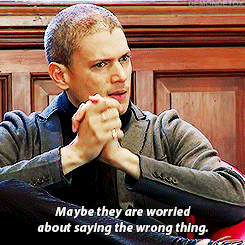
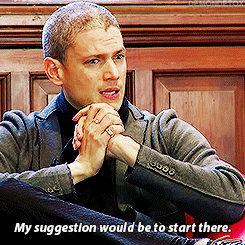
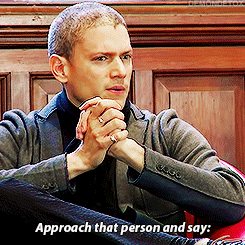

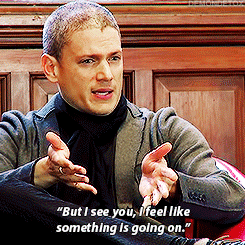
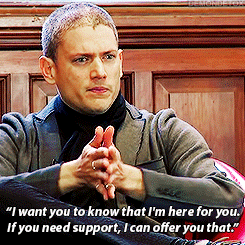
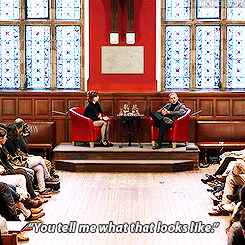
“In that way, you’ve acknowledged that you’re unsure, that you don’t know what to do or say. You’ve acknowledged that you see them. They feel seen. They feel heard and acknowledged, which is huge for someone who’s in crisis.” Wentworth Miller | Q&A at Oxford Union | 2016 | x
if you miss someone who does not miss you, or who is no good for you, or is unattainable, take all the love you once felt for them and spread it around other places. put your love in worthwhile people and things, turn the romance in to passions for hobbies or admiration for others- enrich your own life. focus on yourself and those who actively make you happy.
Sometimes people add the cutest nicest tags to one of my posts, and then I sit there giggling like a dork for entire minutes. I love you too, followers!

-
 sunshinesciencerad liked this · 4 years ago
sunshinesciencerad liked this · 4 years ago -
 transsexula reblogged this · 4 years ago
transsexula reblogged this · 4 years ago -
 transsexula liked this · 4 years ago
transsexula liked this · 4 years ago -
 pbanjellyfish liked this · 4 years ago
pbanjellyfish liked this · 4 years ago -
 whos-that-ghostie reblogged this · 4 years ago
whos-that-ghostie reblogged this · 4 years ago -
 hailbopthecomet reblogged this · 4 years ago
hailbopthecomet reblogged this · 4 years ago -
 hailbopthecomet liked this · 4 years ago
hailbopthecomet liked this · 4 years ago -
 lrnjuble liked this · 4 years ago
lrnjuble liked this · 4 years ago -
 this-is-where-ur-wrong liked this · 4 years ago
this-is-where-ur-wrong liked this · 4 years ago -
 spectreofthewoods liked this · 4 years ago
spectreofthewoods liked this · 4 years ago -
 mynameiskleiosgirl reblogged this · 4 years ago
mynameiskleiosgirl reblogged this · 4 years ago -
 mynameiskleiosgirl liked this · 4 years ago
mynameiskleiosgirl liked this · 4 years ago -
 wordsofachameleon liked this · 4 years ago
wordsofachameleon liked this · 4 years ago -
 wordsofachameleon reblogged this · 4 years ago
wordsofachameleon reblogged this · 4 years ago -
 liliesofvalleys liked this · 4 years ago
liliesofvalleys liked this · 4 years ago -
 eleven-pipers-piping liked this · 4 years ago
eleven-pipers-piping liked this · 4 years ago -
 fall-and-shadows liked this · 4 years ago
fall-and-shadows liked this · 4 years ago -
 lifewithchronicpain-original reblogged this · 4 years ago
lifewithchronicpain-original reblogged this · 4 years ago -
 squishy-bunnie-love reblogged this · 4 years ago
squishy-bunnie-love reblogged this · 4 years ago -
 templedragon liked this · 4 years ago
templedragon liked this · 4 years ago -
 eladoj liked this · 4 years ago
eladoj liked this · 4 years ago -
 danitini reblogged this · 4 years ago
danitini reblogged this · 4 years ago -
 vespertinecat reblogged this · 4 years ago
vespertinecat reblogged this · 4 years ago -
 vespertinecat reblogged this · 4 years ago
vespertinecat reblogged this · 4 years ago -
 squishy-bunnie-love reblogged this · 4 years ago
squishy-bunnie-love reblogged this · 4 years ago -
 vespertinecat liked this · 4 years ago
vespertinecat liked this · 4 years ago -
 kris-cross-applesauce liked this · 4 years ago
kris-cross-applesauce liked this · 4 years ago -
 lifeonthestrugglebus liked this · 4 years ago
lifeonthestrugglebus liked this · 4 years ago -
 itsstevenwithav liked this · 4 years ago
itsstevenwithav liked this · 4 years ago -
 lifewithchronicpain-original reblogged this · 4 years ago
lifewithchronicpain-original reblogged this · 4 years ago -
 danceswiththeundead liked this · 4 years ago
danceswiththeundead liked this · 4 years ago -
 epiphxnyyy liked this · 4 years ago
epiphxnyyy liked this · 4 years ago -
 physichotic reblogged this · 4 years ago
physichotic reblogged this · 4 years ago -
 bluuuueeeed reblogged this · 4 years ago
bluuuueeeed reblogged this · 4 years ago -
 shitshowlive reblogged this · 4 years ago
shitshowlive reblogged this · 4 years ago -
 bluuuueeeed liked this · 4 years ago
bluuuueeeed liked this · 4 years ago -
 jellopirate liked this · 4 years ago
jellopirate liked this · 4 years ago -
 ashtheteenagewitch liked this · 4 years ago
ashtheteenagewitch liked this · 4 years ago -
 zella-rose reblogged this · 4 years ago
zella-rose reblogged this · 4 years ago -
 inheritedwasteland liked this · 4 years ago
inheritedwasteland liked this · 4 years ago -
 jekabeth reblogged this · 4 years ago
jekabeth reblogged this · 4 years ago -
 jekabeth liked this · 4 years ago
jekabeth liked this · 4 years ago
